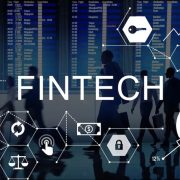First-time entrepreneurs face unique financial challenges when launching their initial ventures. Traditional funding sources often remain inaccessible due to a lack of business history, limited collateral assets, and unproven business models. Microloans bridge this critical gap by providing smaller, more accessible funding amounts designed explicitly for business beginners with minimal track records but promising concepts. Online micro lending tools offered by finance.kz/zaimy/novyy-zaymy have revolutionized access to startup capital by creating streamlined application processes tailored to entrepreneurial newcomers. These specialised lending systems evaluate applications through criteria relevant to early-stage ventures rather than applying conventional banking metrics that inherently disadvantage first-time business owners.
Lower entry barriers
Microloans typically range from $500 to $50,000, aligning perfectly with the startup costs of many first-time entrepreneurial ventures. This scaled approach matches funding to genuine needs rather than forcing new business owners to pursue unnecessarily large loans. The smaller amounts reflect realistic capital requirements for testing business concepts, purchasing essential equipment, securing initial inventory, or funding preliminary marketing efforts. This appropriate sizing creates crucial financial flexibility during the vulnerable early stages of business development. First-time entrepreneurs avoid the burden of excessive debt service that would strain limited revenue streams during the critical launch phase. The right-sized funding allows business owners to maintain operational control while establishing proof of concept without overwhelming financial pressure from oversized loan obligations.
Quick approval process
The timeline from application to funding with microloans drastically outpaces traditional business financing options. While conventional business loans often involve months-long evaluation periods, microloans frequently complete the entire process within days or weeks. This accelerated timeline aligns with the rapid decision-making environment of entrepreneurship, where opportunities require immediate action. Speed matters particularly for first-time entrepreneurs who typically lack the financial reserves to sustain extended waiting periods. Market openings, vendor specials, equipment availability, and lease opportunities often present narrow windows requiring prompt financial response. The compressed approval cycle of microloans enables timely capitalisation on these time-sensitive situations that would otherwise pass before traditional funding materialises.
Minimal requirements
Microloan applications simplify documentation demands to accommodate the reality of first-time entrepreneurship:
- Personal credit history often weighs more heavily than nonexistent business credit
- Business plan requirements focus on concept viability rather than extensive financial projections
- Collateral expectations adjust to early-stage realities with flexible guarantee options
- Income verification accepts alternative documentation beyond traditional employment records
- Reference requirements emphasize character and work ethic over industry-specific experience
This streamlined approach recognizes that excessive paperwork creates disproportionate barriers for solo entrepreneurs and small founding teams with limited administrative resources. By focusing requirements on essential factors while eliminating unnecessary procedural hurdles, microloans become practically accessible to business newcomers juggling multiple startup responsibilities simultaneously.
Trial and error freedom
First ventures rarely execute flawlessly according to initial plans. The entrepreneurial journey involves discovery, adaptation, and strategic pivots as market feedback reveals necessary adjustments. Microloans support this iterative process by providing manageable funding for course correction without catastrophic financial consequences. The contained scale of microloan commitments creates space for valuable learning experiences without risking personal financial devastation. Entrepreneurs can test concepts, gather customer feedback, and refine offerings while limiting potential downside. This protected experimental environment proves particularly valuable for first-time business owners who are still developing their entrepreneurial skill sets through practical application rather than theoretical knowledge.













Comments